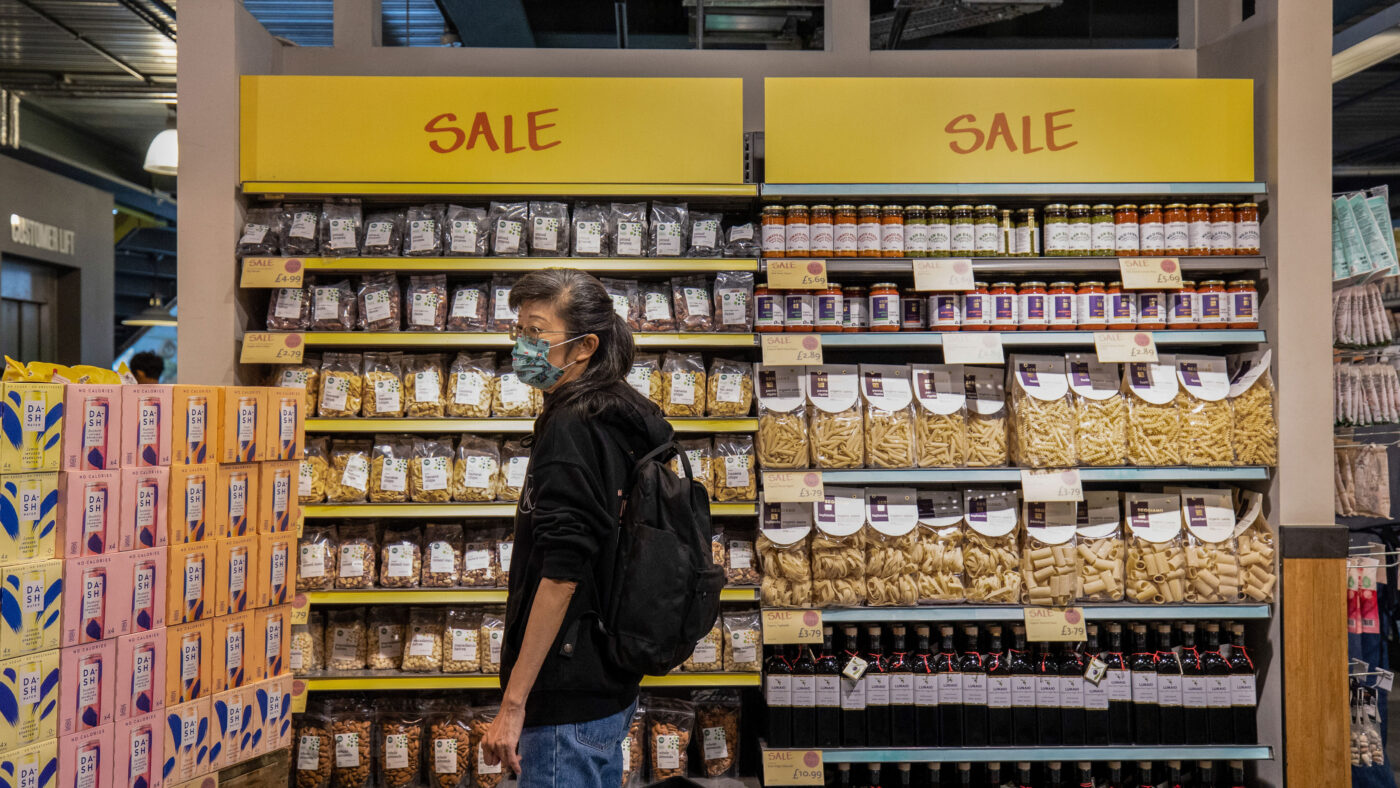An occupational hazard for politicians is having their remarks misrepresented by newspaper headline writers. Yesterday’s Daily Express front page offers a humdinger of an example. Reporting on Chancellor Jeremy Hunt’s reaction to inflation falling, the paper’s splash declares, ‘Prices Must Drop Now Inflation Has Fallen‘ (their emphasis).
At best, this is hugely misleading. At worst, it’s a horrible error.
The key point here is that inflation refers to an increase in overall prices through time. The headline rate we hear about typically refers to the change in consumer prices from this time last year. Inflation falling from 8.7% in May to 7.9% in June, as the paper’s story reports, just means that prices in the last 12 months have increased less quickly than they had in the year through May.
The rate of increase in prices, in other words, has been falling. But just as decelerating in a car moving forwards isn’t the same as it going in reverse, falling inflation doesn’t mean prices are going down; nor is there any reason why they ‘must’ fall as a result of falling inflation in future.
Somebody internalising this headline, and front page, would surely think otherwise. And this is worrying because, as last week’s report from the National Institute of Social and Economic Research showed, a lot of the public confuse falling inflation with falling prices.
Their survey asked people about the phrase ‘the inflation rate has fallen from 10.1% to 6.1%’. Only 44% of the public correctly identified that this meant ‘prices are still rising, but now they are only rising by 6.1%’. A huge 36% of the public thought this meant prices had fallen (most by 4%). This sort of headline risks compounding this error.
Now, in typical contrarian Twitter fashion, there are those who’ve rushed to defend the front page, using two arguments.
The first is that, because headline inflation rates are backward looking over the last 12 months, it’s perfectly plausible for inflation to remain positive, but for the price level to have actually been falling in the last month or two. Prices might still be much higher than a year before, but they have dropped more recently. Which is true, but irrelevant to this story. The price level was up 0.1% from May to June, and the month-on-month inflation rate has been positive every month since January.
A more robust defence of the Express headline is that it was just a garbled summary of what the Chancellor said. Hunt is quoted as saying: ‘The prices charged by producers are coming down – what are called factory gate prices – and we want to make sure that supermarkets and other retailers are passing those on to families as quickly as possible because people are feeling a lot of pressure.’
It’s certainly true that the ‘producer price index’ – which measures the price of inputs to production – has been falling these past three months. Input prices are down 2.7% on the year. If the headline said something like “Prices Must Drop Now Firms’ Costs Have Fallen” with quote marks, then it would be more justifiable.
Unfortunately, even what Hunt said was misleading. Falling input prices don’t mean that shop prices *must* now fall, as the headline suggests. Firms also must pay wages and those are still rising significantly. The minimum wage, for example, was increased by 9.7% in April 2023. And the overall price level is also determined by the level of demand in the economy, not just fluctuations in input prices (which in large part reflect the fall in the price of crude oil).
Neither the Express nor the UK is unique in misunderstanding inflation, of course. The past two years have a been feast of quack theories and dodgy economics: from central banks thinking inflation was ‘transitory’ to the revival of the long-debunked theory of wage-price spirals; people conflating changes in relative prices with inflation; and what you might call ‘heterodox’ theories such as ‘greedflation’ and, most recently, ‘climateflation’. A lot of commentators, politicians, and central banks, have been only too happy to stoke bizarre ideas that minimise the role of money in affecting the price level.
But this sloppy headline’s misunderstanding is something a bit different that should worry Rishi Sunak a lot. The Prime Minister has publicly pledged that inflation would be halved this year, falling from 10.7% to around 5.35%. Thus far, it’s only down to 7.9%. Yet even if inflation gets to where he wants it to be, it’s clear a lot of the public, and even some journalists, will think that prices should be falling. That seems a recipe for immense disappointment.
Click here to subscribe to our daily briefing – the best pieces from CapX and across the web.
CapX depends on the generosity of its readers. If you value what we do, please consider making a donation.


